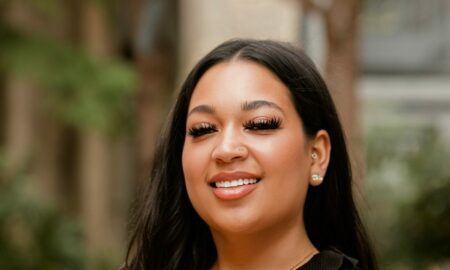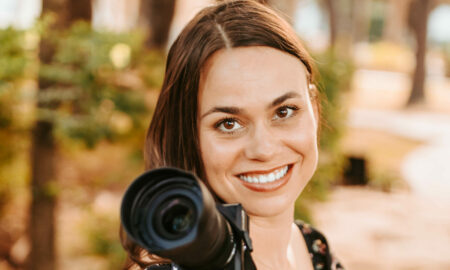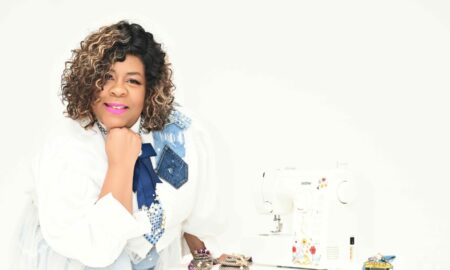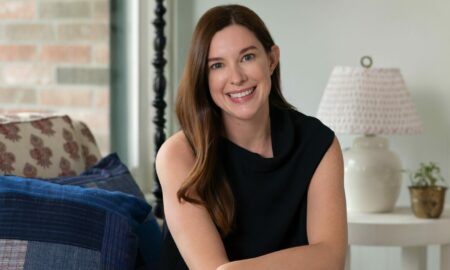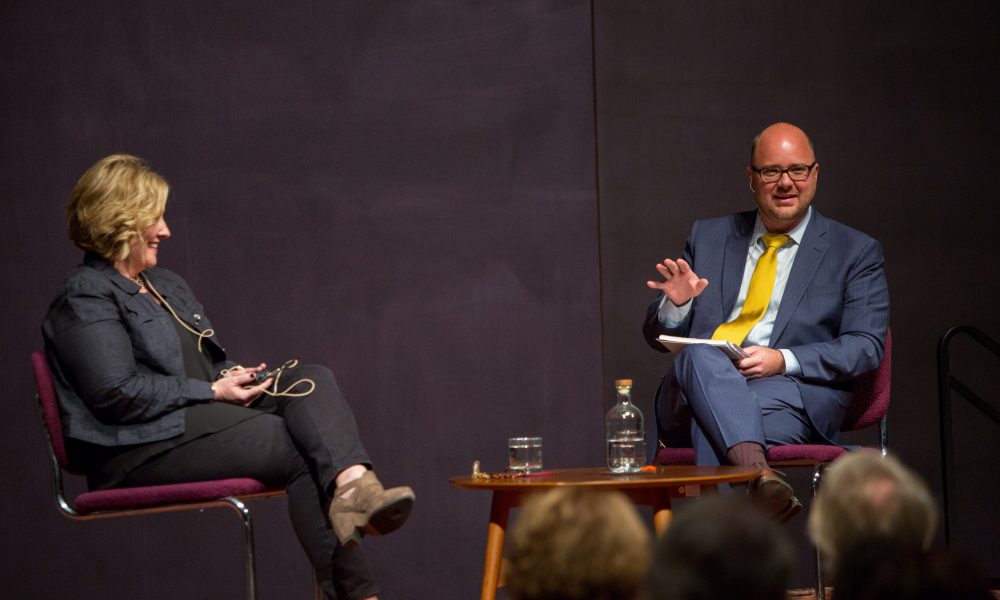

Today we’d like to introduce you to Sean Fitzpatrick.
Sean, let’s start with your story. We’d love to hear how you got started and how the journey has been so far.
When I was about seven years old, I vividly remember staring at a sewing machine in the home of our neighbors, Les and June Fears. We lived in Golden, Colorado and most of our extended family, including our grandparents, lived in Pennsylvania. Les was nearing retirement, and the two of them were surrogate grandparents for me and my siblings. We loved them deeply.
I was staring at June’s sewing machine, but I didn’t see it. I was having a seven-year-old’s existential crisis. I realized that Les and June weren’t going to heaven. My family was devoutly Catholic. Les and June weren’t – they had little interest in church. I talked with my mother about it, who didn’t clarify matters. She was uncomfortable with it too and equivocated. At that moment, a crack formed in the foundations of meaning, in the Christian story that animated and structured my life.
Fifteen years later, I sat at a picnic table in rural Connecticut, at a summer camp not unlike Camp for All. Next to me sat Tom, a Catholic priest. He had just returned to his inner-city parish after ten years in Nicaragua, living with some of the poorest people in the Western hemisphere. The experience had radically changed him and his understanding of the effects of American power abroad. I was his intern. Sitting across from me was an executive at an insurance company. Tom challenged the executive, asked if he knew that his company had underwritten the Pinochet revolution in Chile in 1973. The executive told us: Oh, yes, we talk about that now. We’ve spent millions of dollars there since then. More than 3000 people died in the Pinochet revolution and tens of thousands of others were wounded, tortured, or disappeared. This company paid for it. I had been an Eagle Scout. At that moment, another crack formed in the foundations of meaning, in the myth of American exceptionalism and moral superiority.
Two years later, I sat at another table, this time waiting for my girlfriend in a restaurant across from the skating rink in the Galleria. That same priest had turned his prophetic anger on me. I had not left Melanie, had not renounced middle-class American life, had not started the path toward a radical priesthood. I had been faced with a choice: salvation or damnation. I knew the choice was false, and I also knew I had been judged and found wanting. Another crack formed in my foundations, and I felt close to shattering.
The songwriter Leonard Cohen once wrote that “There is a crack in everything. That’s how the light gets in.”
The last twenty years of my life have involved coming to terms with these cracks – and watching them grow and deepen. I completed graduate training in religious studies (at Rice) and in psychology (at UH-Clear Lake and Saybrook University). For the last ten years, I’ve been a psychotherapist, sitting with others whose foundations of meaning have cracked, and who fear that they will shatter. I began working at The Jung Center in 1997, and I became the director in 2015.
There is a crack in everything. I’m passionate about experiences of meaning, and also experiences of meaninglessness. The stories that we have inherited and constructed about our lives promise security, but they often prevent the possibility of growth and connection. We are not only cracked, we need our cracks. The narratives that seem secure, that hold our communities together – the grand myths of science, of progress, of economic and political ideology, of religious traditions – are all broken. When we imagine them to remain uncracked, we keep the light out. But to be cracked does not mean to be destroyed or irrelevant. It means to understand that none of us holds a monopoly on the truth. It means that others live in very different realities than we do. It means that we can be transformed by risking our sense of security to come into contact with those realities. It means that we have an ethical obligation to know ourselves and that the communities we intend to build outside depend on the communities we build within us – on knowing our fragmentation, and embracing the cracks within each of us.
Has it been a smooth road?
I think the last piece got at some of the challenges. Over the last few years I’ve become more interested in the effect of working in emotionally adverse conditions — which is how many social service providers (social workers, therapists, case managers, nurses, forensic investigators, first responders, interpreters, the medical community, veterinarians, etc) experience their jobs, whether they acknowledge it or not. The trauma and suffering of others have an effect on the witnesses; when it becomes a problem, we might experience it as vicarious trauma or burnout. My family enjoys the show “Dirty Jobs” (well, my son and I do — my wife isn’t a huge fan of many of the gross things people have to do to make a living). Many social service providers are doing emotionally dirty jobs, and they don’t get hazard pay or, often, training in how the work affects them. And the costs can be very high, for them, their loved ones, and even for the people they serve.
I’ve had my own, limited experiences of this. Adjusting to how the work affects me, learning what we call self-care, is an ongoing project. The biggest challenges for me are pretty common, I think: how to balance my family, graduate school, and work has been tough, and I’ve definitely made mistakes and learned lessons along the way.
We’d love to hear more about your business.
The Jung Center supports the development of greater self-awareness, creative expression, and psychological insight — individually, in relationships, and within the community. The stability, quality, and significance of every human life depend on how much each of us experiences meaning as a foundation and a wellspring of energy and guidance. The Center offers more than 200 educational experiences every year, most of which are intended for the general public, that address what matters most. The Center is a space where we can ask the questions that shape our lives: what is my purpose? How can I live with integrity? How can I help my community strengthen and grow? How can I move past the old stories that have limited me and learn to live a more courageous, fulfilling related life? And how does the way I understand myself affect my ability to encounter and create community? We cannot just look to one book, or one perspective, one academic or creative discipline or cultural resource to find the answers. And we cannot borrow someone else’s answers, either. We have to live our way into them. So, at The Center, we facilitate encounters with artists, scholars, psychotherapists, writers, musicians, spiritual leaders, and — most importantly — with other thoughtful, reflective, and dynamic students working to live lives of compassion, insight, and service.
Right now, we’re most proud of our growing work in the community. We helped to coordinate behavioral health professionals who volunteered to help others following Harvey, and we continue to do work to help those affected by the storm. We’re also proud of our work with social service providers in emotionally difficult jobs, the folks who do the work we don’t want to do, who are actively healing others and changing our community for the better. Really, we’re proud of every instructor who teaches at the Center, and every student who comes here because they want to lead a more meaningful life.
Is our city a good place to do what you do?
Though at first glance one might not think that Houston would birth a place like The Jung Center, it makes perfect sense. We’re one of the most community-minded cities in the country — look at our Harvey response and the extraordinary philanthropy in Houston. We’re filled with people who care about their communities and in particular care about reaching out across ethnic, economic, and educational boundaries to know people very different from themselves.
Pricing:
- Our prices range from free to $300, depending on the offering.
Contact Info:
- Address: 5200 Montrose Blvd
Houston, TX 77006 - Website: junghouston.org
- Phone: 713.524.8253
- Email: sfitz@junghouston.org
- Instagram: junghouston
- Facebook: https://www.facebook.com/junghouston/






Image Credit:
Sean Fitzpatrick, Harris County Public Health and Environmental Services
Getting in touch: VoyageHouston is built on recommendations from the community; it’s how we uncover hidden gems, so if you know someone who deserves recognition please let us know here.










